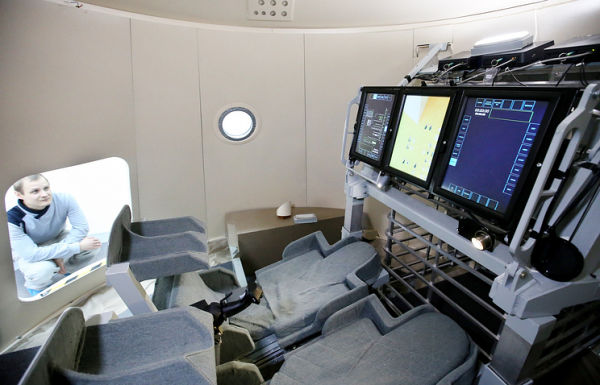India has competencies in the development and launch of satellites and could participate in the creation of lunar modules, said Ruslan Permyakov, Deputy Director of the NTI Competence Center "Technologies of Trusted Interaction" based on TUSUR
MOSCOW, May 23rd. /tass/. India, Brazil and South Africa are among the countries that may be interested in participating in the lunar program of Russia and China. Such a partnership will accelerate the development of some technologies and devices for space, according to Ruslan Permyakov, Deputy director of the Competence Center of the National Technology Initiative (NTI) "Technologies of Trusted Interaction" based on TUSUR.
Earlier, at a meeting of the heads of space agencies of the BRICS countries in Moscow, the head of the Chinese National Space Administration (CNSA), Zhang Kejian, spoke about the importance of expanding international cooperation in the field of lunar exploration and invited other countries to join the Russian-Chinese project to create an International scientific lunar station. Speaking about the states that may be interested in cooperating with the Russian Federation and the People's Republic of China in this area, Permyakov noted India, Brazil and South Africa.
"India has expertise in the development and launch of satellites and could participate in the creation of lunar modules, as well as the use of technologies for communication and navigation. Brazilian specialists are competent, for example, in satellite technologies. They can contribute to the development of satellite communications and environmental monitoring on the Moon. South Africa has experience in radio astronomy and space research. Their participation could accelerate the creation of scientific instruments for studying the Moon and space, the development of ground stations for communication with the lunar base," Permyakov told a TASS correspondent.
Andrey Novikov, Deputy Dean of the Faculty of the Moscow State Technical University named after N. E. Bauman, market expert at NTI Aeronet, in turn, pointed out the prospects for cooperation not only with India, but also Saudi Arabia.
"It is important to understand the goals of a potential partnership here. I think it is advisable to invite the countries of the Middle East, <...> [which have] finances and the desire to make themselves known [in this area]. For example, India, as the country with the greatest technological potential at the moment, and Saudi Arabia can become serious partners. I would single out these states," he concluded.
In March 2021, Roscosmos and China signed a memorandum of understanding and cooperation on the creation of an International Scientific Lunar Station (ISS). During the implementation of the lunar program, the Chang'e-6, Chang 'e-7 and Chang'e-8 automatic stations will go to the Earth's natural satellite. The purpose of the first lunar missions will be to test key technologies, which will allow further construction of a complex of experimental research facilities that can be controlled remotely. The first mission will go to the Moon in 2026, and the project is scheduled to be completed by 2028. In early March, the head of Roscosmos, Yuri Borisov, said that Russia and China are considering the possibility of delivering a nuclear power plant to the Moon and installing it on its surface in 2033-2035.

